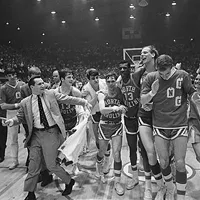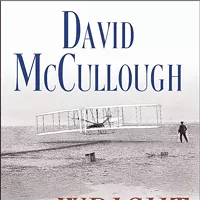Book reviews: We Live in Water, Mission to Paris
End the summer with these worthy beach reads
By John GroomsSummer is almost over, as are your chances to spend the day basking on the beach with a book. Of course, you could head to the shore the week after Labor Day and avoid the big crowds, but work with me here. In the interest of getting you out on the sand with a story or two, here are a couple of smart paperback reads you can enjoy while whiling away your last beach trip of the year. And if you're not headed to the beach at all — heck, even if you hate the beach — these are still fine, intelligent reads wherever you are.
We Live In Water
by Jess Walter
(Harper Perennial, 192 pages, $14.99)
If you haven't discovered Jess Walter, a gritty, smart satirist of the present age, you could start with his most recent novel Beautiful Ruins or the National Book Award finalist The Zero — or you could ease into Walter's big-hearted, class-conscious world via We Live in Water, a new collection of short stories.
Much of Walter's work takes place in the Northwest, including this collection's splendid title story in which an attorney goes back to his less-than-ideal hometown to try to find his father, who dropped out of sight 30 years ago. In "Anything Helps," a homeless former addict tries to raise money to buy his son the latest Harry Potter book, while the protagonist/newspaper editor of the funniest story here, "Virgo," seeks revenge on his ex-girlfriend by messing around with her horoscope.
The characters in Walter's short stories — people who often struggle to overcome their bad choices — would often be considered losers, clueless or, at the very least, underachievers. Walter, though, passes no such judgments — not here, nor in his novels. A constant subtext in Walter's books is that people have their reasons, a viewpoint he brings alive with a generous spirit and a smirking kind of empathy that wields a wait-and-see attitude toward his characters.
Mission To Paris
by Alan Furst
(Random House, 272 pages, $16)
Alan Furst has earned a reputation as the most literary of today's spy novelists. His espionage series, beginning with 1988's Night Soldiers, features varied protagonists in pre-World War II Europe who work against the impending Nazi onslaught. The stories are smart and suspenseful, and offer a showcase for Furst's precise, fluid prose that brings to life pre-war times and places, be it Warsaw, Paris, Helsinki, the Balkans, Vienna or London. In Mission to Paris, Furst returns to the city where he lived for many years in real life; it's one of his finest yet.
It's 1938, and Hitler's Germany has a special bureau designed to wage political war against France by influencing members of the government in Paris. An American movie star, Fredric Stahl, lands in Paris, ready to make a new film. The Nazis see Stahl as a perfect opportunity to wield influence for them and recruit him vigorously, unaware that the actor despises the Nazi crusades against Jews and intellectuals and has, in fact, joined a loosely organized spy ring, run from the U.S. embassy.
From that set-up, Mission to Paris takes off quickly, and the pace is relentless all the way to the end. Schemes are hatched, foiled, re-hatched and discovered again; treachery and back-stabbing rule the day; and the characters — including hired assassins and an alluring Russian actress who becomes a spy — are fully fleshed-out, 3-D characters, not the clichéd stereotypes of many spy novels.
Furst is a master at delivering the sights and ambience of a city. Here, he breathes life into late-'30s Paris, as well as its residents, each of whom is faced with myriad new problems as the war creeps closer to their corner of the world.
Furst's penetrating eye and lyrical writing just get better with each new novel. Here, that talent makes Mission to Paris one of the most exciting, intelligent spy novels in memory.
Speaking of...
Latest in Books
More by John Grooms
Calendar
-
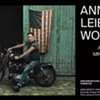
ANNIE LEIBOVITZ / WORK @ Mint Museum Uptown at Levine Center for the Arts
-
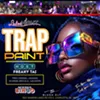
Trap & Paint + Music Bingo @ Blush CLT
-
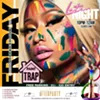
Trap & Paint (Hookah Edition) @ Blush CLT
-

BookTok Sensation RC Luna Comes to Charlotte – Author Signing Event @ The Trope Bookshop
- Sat., Aug. 30, 11 a.m.-1 p.m.
-

R&B Sip & Paint + Comedy Show @ Blush CLT







